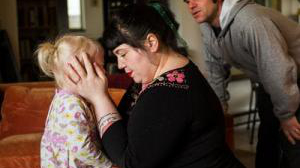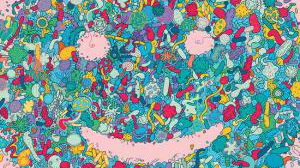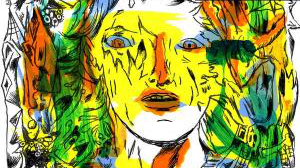Post-traumatic Stress Disorder: Why is this still happening?
Post-traumatic Stress Disorder or PTSD is the term for a set of normal reactions to a traumatic, scary or bad experience. These include natural disasters, military combat, car accidents, sexual or physical assault, physical injury, and child abuse or neglect among others.
PTSD is surviving a terrifying experience that leaves you feeling helpless, frightened and in a fight, flight or freeze response. Although the trauma may have occurred months or years ago, you continue to have problems. You mentally and emotionally re-experience the traumatic event, avoid stimuli associated with the event, and generally feel “numb” or hyper alert.
In addition to the emotional component of these devastating events, you may also have physical problems due to the trauma itself that may negatively affect your functioning for a long time.
Mental health professionals have learned that there are far more people suffering from trauma than they had previously realized. Many of these survivors who develop PTSD have been getting by just trying to cope. Without treatment, the problem may intensify. Progressive symptoms may lead to conflict in interpersonal relationships, irritability, shame, alcohol and drug abuse, long-term depression and anxiety, and low self-esteem.
Post-Partum Depression/Anxiety (PPD/PPA): Why don’t I feel happier?
As a parent you expected the birth of your child to be a time of joy and fulfillment. In fact, as many as half of all women experience some depression or anxiety after giving birth. Close to 20% remain depressed or anxious for months or even years. Most of the time, these symptoms are temporary but for some women, these symptoms may continue and lead to marital conflict and a lack of attachment with your baby. Many men suffer similar symptoms though your experience is often overlooked and underreported. Often doctors and therapists don’t recognize the symptoms of PPD/PPA. Husbands and family members may not know what is happening to their partner or what to do.
You may be completely unprepared for a range of frightening, confusing and upsetting emotions during your pregnancy and/or postpartum period. You may feel overly concerned for your baby, have intrusive thoughts, fears that don’t make sense, feel ashamed, inadequate, guilty, and too afraid to admit your feelings. You may have also experienced birth trauma complicating your ability to process the post-partum adjustment. For more information see Birth Trauma.



Birth Trauma: Why did fear take away my joy?
Often when we talk about birth trauma, we are talking about Post-traumatic Stress Disorder (PTSD) that occurs after childbirth. PTSD is a set of normal reactions to a scary or traumatic experience. The parent has witnessed or experienced themselves a traumatic event. They may also have felt fearful for their own safety or their baby’s safety. Sometimes the trauma can be the loss of control, not being heard, loss of dignity, the hostile or difficult attitudes of the people around them, lack of appropriate responses by medical personnel and the absence of informed consent for medical procedures.
It is important to remember that PTSD and Birth Trauma is a normal response to a traumatic experience. The re-experiencing of the event with flashbacks accompanied with anxiety and fear are beyond the individual’s control. They are the mind/body’s way of trying to make sense of an extremely scary experience and not a sign of an individual’s weakness or inability to cope. Therapeutic techniques are used to calm the mind/body and assure it that there no longer is a threat.
Anxiety: Friend or Foe?
Anxiety is a part of everyday life. In normal situations it is helpful. It guides us to pay closer attention, warns us of potential problems, and reminds us of things that may have temporarily slipped our minds. It acts as the eyes in the back of our head. Anxiety becomes problematic when it works overtime, pushing us to over think, not let go of events that are past, and worry excessively about things that haven’t happened. It may interfere with sleep and appetite, cause headaches and nausea, and lead to hallmark symptoms of controlling and avoidant behavior. Clinically, it may also mask underlying issues too difficult to face directly.
In extreme cases, anxiety may escalate to panic accompanied by heart pounding, sweating, nausea, weakness, confusion and rapid or shallow breathing. Perhaps surprisingly, these symptoms often pass within 3-20 minutes with no clear trace of what triggered the episode.
Another type of anxiety involves obsessions in which you are preoccupied with a subject, event, object or experience that predominates your thinking. It often causes distress because the preoccupation feels excessive even to you. Similarly, compulsions usually depict the behaviors you feel compelled to do in order to manage the anxiety.
All forms of anxiety respond to specific treatments that lessen your distress by increasing your capacity to cope. The result is restoring a sense of control in the moment, and empowering you to face the psychological drivers of the anxiety. Mind/body approaches are very effective in helping you better manage the anxiety.

Depression: Darkness or Light?
Depression is one of the most common reasons people seek therapy. Situational depression may relate to work, relationships, injury, loss, and even world events. Other forms of depression may develop from low self-esteem, shame, alcohol and drug issues, and biochemical problems impairing sleep, energy, motivation and cognitive functioning. Either way, we see depression as a light or opportunity for necessary change. For instance, there may be an important aspect of your life that is out of balance – emotionally, physically, mentally and spiritually. You may not feel aligned with your values and intentions. Treatment focuses on your own internal and external resources to guide healing rather than focusing on symptom relief from medication.




Couples Treatment: Why are we fighting?
Conflict is normal for all couples. But how you deal with conflict can make the difference between a satisfying relationship and one fraught with argument, hurt, resentment, disconnection, fear, anxiety, and anger. It is always more than a communication problem. Finding solutions often requires reorienting how you see and hear your partner. Identifying needs, learning about attachment and sexual styles, and practicing congruent love languages promotes success.
Affairs present challenges and potential for healing for both partners. Beyond the need for taking responsibility and being accountable, each couple must determine their own path toward reconciliation. Recovering from the pain of affairs requires patience. Overcoming shame, hurt and rebuilding trust are core stages for this work.

Parenting: Am I cut out for this?
Bringing children into your life is usually a cause for celebration, a milestone in creating a family. Parenting, however joyful, often brings unexpected challenges. You may doubt your abilities and choices and feel ashamed or too overwhelmed to talk about those feelings.
Are you and your partner on the same page? Think of how you handle discipline, homework, allowance, curfew, clothing style, religious and gender identity, defiant behavior, sexual choices, sibling rivalry, drug and alcohol use, emotional and mental health issues involving your children? Asking yourself and your partner these questions helps start a useful conversation for more effective parenting and a more satisfying family life.



Addiction: Am I really using too much?
Rather than a focus on how much and how often drugs and alcohol are used, attention must be given to why you attempt to cope in this way and how it impacts your life and those around you. The addictive or dysfunctional behavior often masks complicated feelings such as depression, shame, and anger, co-occurring issues, and traumatic histories. In other words, the addictive behavior is often only a symptom of the problem. Restoring health involves more than stopping problem drug and alcohol use. Identifying core issues and facing them directly is the first step toward healing.
ADD/ADHD: Lazy, late and forgetful – is it me or ADD?
Attention problems and hyperactivity are one of the most researched mental health and behavior issues of children. But the problem and treatments are still confounding for many individuals, parents, teachers, partners and friends. The symptoms often persist into adulthood affecting job performance, time management, intimate relationships and self-esteem. Though medication is successful for many, there are other options and treatment approaches. The many sub-types of ADD/ADHD make a multi-faceted approach essential.
Adoption – support for bio and adoptive parents and adopted youth
Birth parents, adoptive parents and adopted youth can experience many challenges in their personal growth and relationships through the years. We provide support to address many issues that can arise from grief and loss to conflict.
Co-parenting following separation and divorce
Our role as parents does not change when when our relationships and living arrangements do following separation and divorce. Being the best possible parents with clear distinctions in our interactions with our children versus our former partners takes time and effort.
